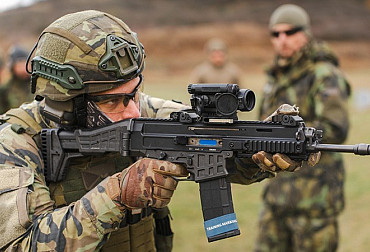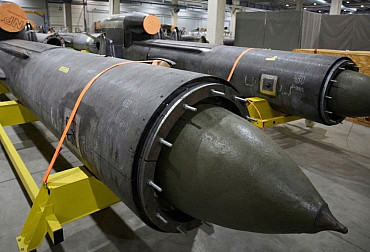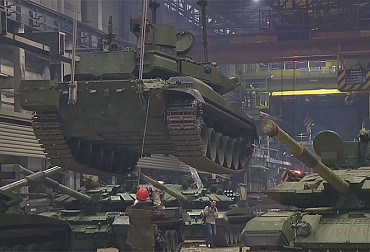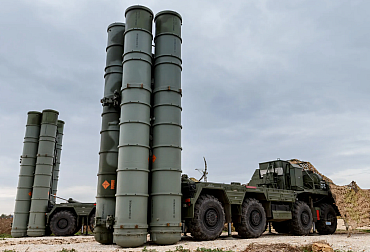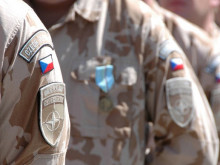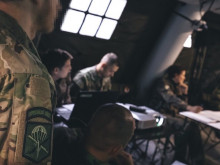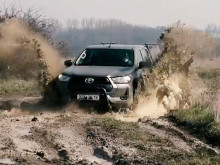Acquisition of Heron drones and industrial share of the Czech Republic
Both economic and military logic encourage the state to rely mainly on domestic industry for its armaments. As a result, the money spent acts as an investment stimulus, and the military is independent of the supplier in its use outside the territory it controls. However, the defence industry of a central state the size of the Czech Republic does not produce everything, so armament contracts for foreign manufacturers must be necessary. However, due to the maturity and flexibility of Czech companies, it is always possible to request at least the involvement of domestic industry defined by a fixed share of the contract value. An example of this approach is the upcoming acquisition of three HERON 1 drones from the Israeli company IAI.
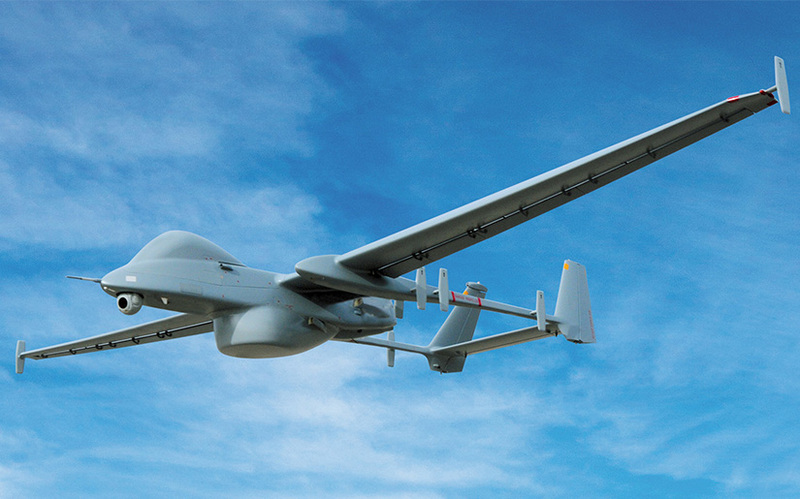 Foto: The defence industry of a central state the size of the Czech Republic does not produce everything, so armament contracts for foreign manufacturers must be necessary. However, due to the maturity and flexibility of Czech companies, it is always possible to request at least the involvement of domestic industry defined by a fixed share of the contract value. An example of this approach is the upcoming acquisition of three HERON 1 drones from the Israeli company IAI. | IAI
Foto: The defence industry of a central state the size of the Czech Republic does not produce everything, so armament contracts for foreign manufacturers must be necessary. However, due to the maturity and flexibility of Czech companies, it is always possible to request at least the involvement of domestic industry defined by a fixed share of the contract value. An example of this approach is the upcoming acquisition of three HERON 1 drones from the Israeli company IAI. | IAI
This acquisition will take place in a government-to-government format. The supplier will therefore not be the manufacturer, the Israelicompany IAI, but directly the State of Israel represented by its Ministry of Defense. The Czech Republic requires the significant involvement of domestic industry, which corresponds to other projects for the Czech army with an Israeli footprint: these are the acquisition of MADR radars from ELTA Systems and the purchase of the SHORT-range air defense system SPYDER from Rafael.
As for the essence of the product itself, creating a new local supply chain for a high-tech drone or radar is very challenging and it is necessary to carefully consider whether it is worth it. Fortunately, the Czech defence industry is largely made up of very flexible medium-sized companies that can play an important and, without exaggeration, necessary roleeven in advanced electronic systems of Israeli production.
In the case of the acquisition of HERON 1 unmanned aerial vehicles, the involvement of Czech industry is necessary to achieve interoperability with command, control and reconnaissance systems at the level of the Czech Republic and NATO. This requires a company that has the necessary experts and know-how at its disposal and at the same time has security clearances to the level of secret at the Czech and alliance level. In the field of radars, air defense and control and command systems of the Army of the Czech Republic, RETIA has played a unique role since its inception in the 90s. Therefore, it is a logical partner for Israeli suppliers and will very likely play a pivotal role in the HERON 1 project. This company can also participate in the installation of communication and information systems introduced in the Army of the Czech Republic, which will distinguish the Czech variant of HERON 1 from the off-the-shelf solution offered by the manufacturer.
Another company that will undoubtedly play an important role in the introduction of Israeli drones into the armament of the Army of the Czech Republic will be the state enterprise Military Technical Institute. It is an essential partner and at the same time an independent testing authority for corporate and control tests that precede the final military tests. It will also participate in the documentation necessary for the effective and safe use of drones in the service of Czech soldiers. Additional local companies will probably join the effort in concert with the compaies mentioned above, based on specific capailites needed for the projects implementation.
Of course, the condition for the successful localization of part of the project into Czech industry is close cooperation with the Israeli manufacturer and its willingness to actually involve Czech companies in the process. It is good practice for the Czech industrial share to be agreed at the same time as the preparation of the contract between the Czech and Israeli Ministries of Defense, and the signing of industrial cooperation agreements occurred at the same time as the signature of the main contract for the supply of the system itself.
The advantage is that Israeli manufacturers and their Czech partners already know each other well from the MADR and SPYDER projects, and in the case of the first mentioned project, supplies of radars are already underway, in the production of which the Czech industry participated, for example, through the production of antenna modules by gallium-nitride technology. The first Israeli-Czech radar MADR odb at de made its public debutat the Future Forces Forum exhibition at the end of October.
It can be said that for Israeli producers, their ability to transfer production is a competitive advantage. It was thanks to her that they made their way into the armies of a number of NATO states. For example, the German HERON 1 drones were delivered in cooperation with the Airbus concern.
Last but not least, it is necessary to mention the life cycle of technology. This is also part of the value of the project and is crucial for keeping the system in operation, preferably by one's own forces without the need for Israeli technicians to fly to the Czech Republic. It can be assumed that it is on this item that the Ministry of Defense will preferentially insist within the framework of industrial cooperation.











